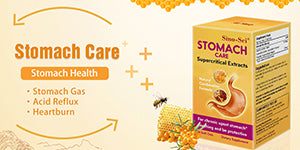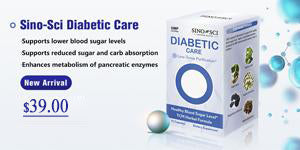Reishi Mushroom and Its Medicinal Uses
Lingzhi has been recognized as a medicinal mushroom for over 2000 years, and its powerful effects have been documented in ancient scripts.
The proliferation of G. lucidum images in art began in 1400 AD, and they are associated with Taoism.
The first book entirely devoted to the description of medicinal mushrooms was Shen Nong Ben Cao Jing, written in the Eastern Han dynasty of China (25-220 AD). This book is also known as “Classic of the Materia Medica”. The book describes the beneficial effects of several mushrooms with a reference to the medicinal mushroom genus Ganoderma.
The second book was the Ben Cao Gang Mu by Li Shi-Zhen, which is considered to be the first pharmacopoeia in China (1590 AD; Ming dynasty). In this book, the mushroom was attributed with therapeutic properties, such as detoxifying effects, enhancing vital energy, strengthening cardiac function, increasing memory, and anti-aging effects.
Currently, according to the State Pharmacopoeia of the People’s Republic of China (2000), Ganoderma acts to replenish Qi, ease the mind, and relieve cough and asthma. With its traditional Chinese name Lingzhi, Ganoderma was called Reishi by Japanese name, so "Reishi mushroom" is the common name for Ganoderma.
The bioactive components of Reishi mushroom that have high medicinal values are mainly polysaccharides and triterpenes. Both Ganoderma polysaccharides and triterpenes have been demonstrated by previous studies in enhancing various aspects of human health, such as immune support, cardiovascular health, anti-cancer, etc.
Chinese people have categorized different species of wild Reishi mushrooms. The most common Reishi mushroom that we know is Ganoderma lucidum, which is called "Red Reishi" in Cihnese.
In addition, there are also "Green Reishi", "White Reishi", "Purple Reishi“, “Yellow Reishi” and ”Black Reishi". Different species all have very good effects in enhancing human health.
Reishi mushroom spore powder is the "broken" or "cracked" spores where the hardened outer shell of the spore has been shattered in an effort to access the contents within.
Reishi mushroom spore powder has great healing potential for the immune system. Studies show that Reishi mushroom "super charges" the white blood cells and enhances our body's defense mechanism.
Reishi mushroom spore oil is the concentrated extract of the triterpenes, which are contained deep within the Reishi mushroom spores.
With the Reishi mushroom spores cracked, we isolate the Reishi mushroom spore oil from the shell to further concentrate the triterpenes and polysaccharides and enhance the anti-cancer activity and immunity in the human body.
Reishi mushroom spore oil is richer in triterpenes compared to Reishi mushroom spore powder.
Triterpenes:
It has been proven by various clinical and pre-clinical trials that ganoderic acids (GAs) obtained from Reishi mushroom contain several significant properties in helping against human diseases. Many of these GAs are triterpenes. They activate lymphocytes, macrophages and other effector cells with binding leukocyte and serum-specific proteins, and consequently, cytokine levels are raised for instance formation of interleukin, tumor necrosis factor-alpha (TNF-alpha) and interferon (IFN).
Polysaccharides:
Polysaccharides are also a major part of the bioactive components in Reishi mushroom that enhance human immune system.
For our artificially cultivated Reishi mushrooms, the mycelium is usually harvested on the lab medium, whereas the friut body are usually grown in the forest, so the fruit body is more nutritious than the mycelium.
Reishi mushroom powder is a whole extract that contains all the compounds naturally found in a Reishi fruit body, and does not include spores.
Reishi mushroom spore powder is when the Reishi mushroom spores are cracked, and the hardened outer shell of the spore has been shattered in an effort to access the content within.
Ganoderma lucidum, also known as "Red Reishi Mushroom" in Chinese, is the most common and prevailing medicinal Ganoderma species on market. As an oriental fungus, Ganoderma lucidum has a long history of use for promoting health and longevity in China, Japan, and other Asian countries. It is a large, dark mushroom with a glossy exterior and a woody texture. The Latin word lucidus means "shiny" or "brilliant" and refers to the varnished appearance of the surface of the mushroom. According to the State Pharmacopoeia of the People's Republic of China (2000), Ganoderma lucidum acts to ease the mind, and relieve cough and asthma, and its medicinal effects are higher than other Ganoderma species.
Zhongke utilizes an advanced aerospace mutation breeding technology for the cultivation of its Reishi mushrooms. In the aerospace station, the physical parameters, e.g. temperature and ultraviolet radiation, are much more likely than on the ground to conduct mutagenesis in Reishi mushrooms, and thus producing Reishi mushrooms of larger sizes and with higher nutrition contents.
Zhongke also utilizes ambient-temperature cell wall-cracking technology to generate broken Reishi mushroom spores. As the spores have cell wall structure, we have developed this special technology to crack the cell wall so that the nutritious compounds can be extracted.
Also, previous studies have demonstrated a higher cracking efficiency of Reishi mushroom spore cell wall structures at room (ambient) temperature, as there will be less breakdown of triterpenes or polysaccharides at room temperature than at high or low temperatures.
In addition to the aerospace mutation breeding technology, Reishi cultivation specialists at Zhongke have also recently established a wild-mimicking cultivation area for Reishi mushroom quality enhancement at Mt. Huangshan.
The cultivation area where we grow our Reishi mushrooms greatly mimics where they were growing in the forest. Therefore, both the environmental and microbial factors in the cultivation area are more beneficial to Reishi mushroom growth, thus enhancing its nutritious values.
Meanwhile, other Reishi mushroom producers grow Reishi mushrooms on wood pieces either in the lab, or on the farm. However, whether in the lab or on the farm, the environmental and microbial factors cannot be as real as in the forest. Therefore, the products of other producers who do not grow Reishi mushrooms in the wild-mimicking cultivation area are less nutritious and not rich in triterpenes or polysaccharides.
Reishi mushroom is a fungus that holds an important place in the traditional medical systems of China, Japan, Korea and other Asian countries for its health-promoting effects.
Extracts of Reishi mushrooms were shown to have immuno-modulatory, renoprotective, anti-inflammatory, and hepatoprotective properties both in vitro and in vivo.
Reference:
https://www.mskcc.org/cancer-care/integrative-medicine/herbs/reishi-mushroom
The oil of G. lucidum spores (GLSO) is one of the well-known G. lucidum-related products. Recent studies have investigated the immuno-enhancing effect of GLSO in mice. GLSO enhanced macrophage phagocytosis and NK cell cytotoxicity of mice.
Other studies that performed microbiome and metabolomic analysis have also shown that GLSO induced structural rearrangement of gut microbiota, hence mediating alterations in a wide range of metabolites.
Reishi mushroom has also been studied for its anticancer potential. In small clinical studies, Reishi mushroom increased the antioxidant capacity of cells, and enhanced immune responses in cancer patients.
Reference:
https://www.mskcc.org/cancer-care/integrative-medicine/herbs/reishi-mushroom
Different triterpenes have different effects and mechanisms on different types of cancer. According to a recent study (see image below), many types of cancer can be ameliorated by taking Reishi mushroom products rich in triterpenes, such as liver cancer, leukemia, cervical cancer, breast cancer, lung cancer, etc.
Reishi mushroom has been shown to have hepatoprotective effects. In a recent study (see reference), researchers pretreated mice with Reishi mushroom spore and challenged the mice with a hepatotoxic dose of Cd(II). An examination of liver injury revealed the protective effects of Reishi mushroom spore against Cd(II)-induced liver injury in a dose-dependent manner. Therefore, Reishi mushroom is beneficial to liver health and protects liver against heavy metal-induced hepatotoxicity.
Reference:
Protective effects of Ganoderma lucidum spore on cadmium hepatotoxicity in mice, Jin et al, Food and Chemical Toxicology, 2013
Antioxidants are molecules that can help prevent damage to your cells.
Because of this important function, there is substantial interest in foods and supplements that can enhance antioxidant status in the body, and Reishi mushroom is one of them. Many studies have also claimed that Reishi mushroom is effective for anti-aging.
Reference:
Emerging roles of Ganoderma lucidum in anti-aging, Aging and Disease, 2017
Nowadays, atherosclerosis has become an important, chronic threat to human cardiovascular disease. Previous studies revealed the association of serum low-density level (LDL) cholesterol levels with atherosclerosis.
Recent studies demonstrated that G. lucidum lowered LDL cholesterol levels in lab animals.
Therefore, G. lucidum is likely to be beneficial for clinical treatment of atherosclerosis.
Hypertension is the leading risk factor for cardiovascular disease and mortality worldwide with an estimated number of 1.56 billion individuals with hypertension by 2025.
Recent studies demonstrated the potential cardioprotective role of Ganoderma lucidum spore oil under high blood pressure conditions. Therefore, G. lucidum is helpful in dealing with hypertension.
As a fungus, Reishi mushroom has cell wall structures, and the cell wall of Reishi mushroom spores usually has a double-layer structure. If the cell wall double-layer structure is not broken, the nutritious compounds (mainly polysaccharides and triterpenes) in the spores will not be excreted, and thus the nutrition uptake by human body will fail.
Therefore, an advanced ambient-temperature cell wall-cracking technology is needed to crack the double-layer cell wall structure of Reishi mushroom spores.
Also, there are other producers whose Reishi mushroom spore cell wall is unbroken. As a result, their Reishi mushroom spore powder product is less nutritious than ours.
No. Our Reishi Mushroom Spore Powder product won't cause allergic reaction.
Instead, if you usually have respiratory issues, such as asthma, Reishi mushroom products are very helpful in ameliorating your symptoms.
Yes.
According to the introduction of how Reishi mushroom spore oil helps enhance immunity, Reishi mushroom spore oil alters the species in gut microbiota.
Therefore, if you have gastrointestinal problems, you might need to have a better gut microbiota and Reishi mushroom spore oil will be your good choice!
Yes.
According to the introduction of how Reishi mushroom can help lower blood pressure, if you are suffering from hypertension, Reishi mushroom will also be your good choice!
We recommend Reishi mushrooms cultivated in the wild-mimicking area.
According to previous introduction, there are many Reishi mushroom species, some of which resemble Ganoderma lucidum a lot in the appearance. Therefore, species identification might be very challenging and labor-intensive if we only have wild collections of Reishi mushrooms.
Artifically cultivated Reishi mushrooms are of one single species (e.g. Ganoderma lucidum) and you don't have to question what mushroom species it is!
Furthermore, wild Reishi mushrooms might have poor quality due to insect attack and heavy metal contamination, whereas our artificially cultivated Reishi mushrooms undergo quality control, and thus have better quality.
Sometimes, you may sense a minor increase in your body temperature (still within the normal range) as the Reishi mushroom product stimulates your immune system, and this might further cause some symptoms including dryness of the mouth, throat and nose.
The best time to take our Reishi mushroom product is when you have an empty stomach, so that the bioactive compounds in the product will be absorbed at a higher rate by your gastrointestinal system.
Currently, there has not been enough investigation into its safety in these circumstances. If you are pregnant or lactating, you must consult your doctor before you take any of our Reishi mushroom product.












